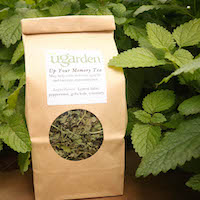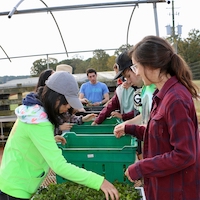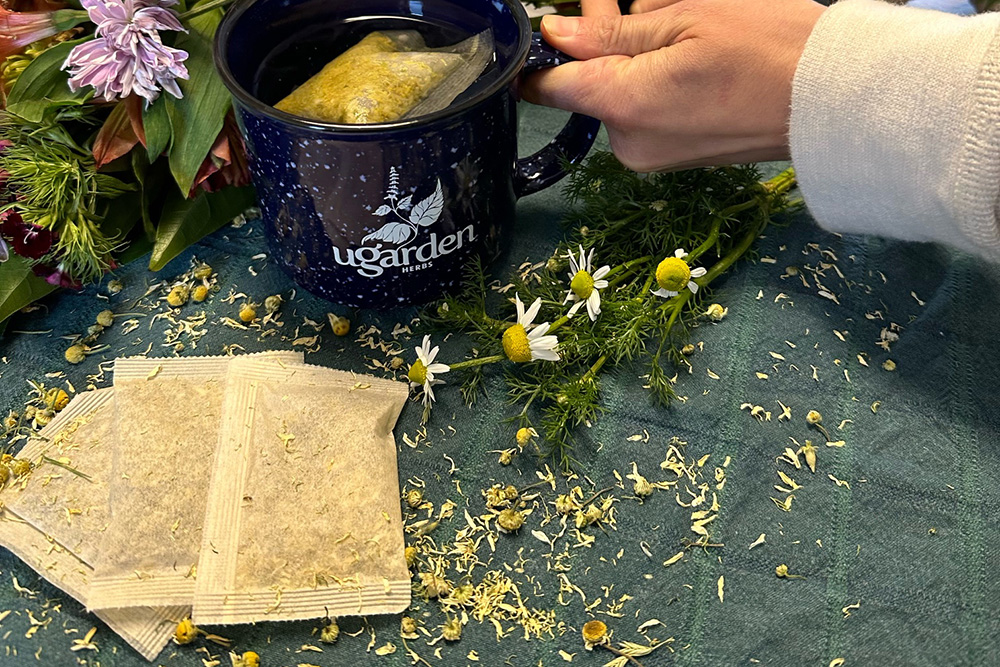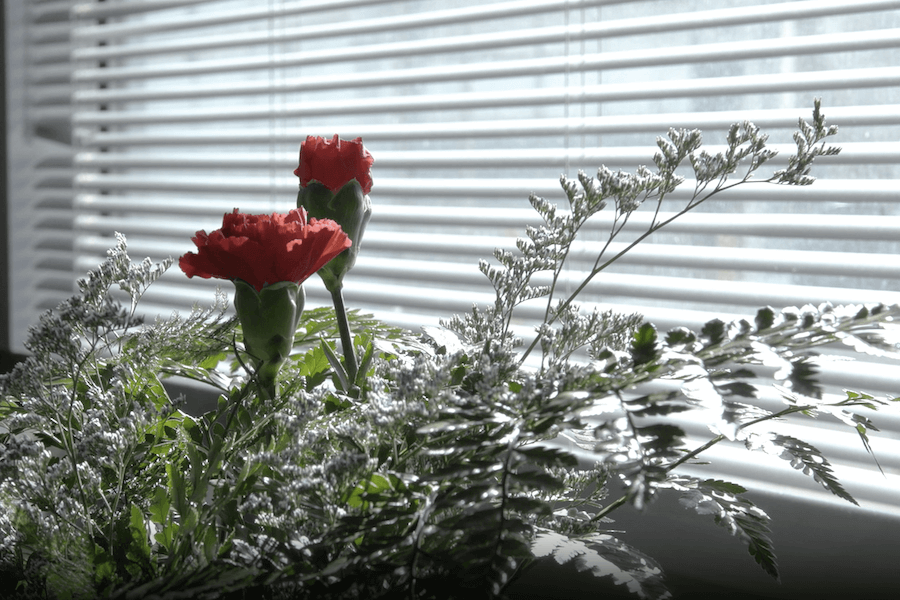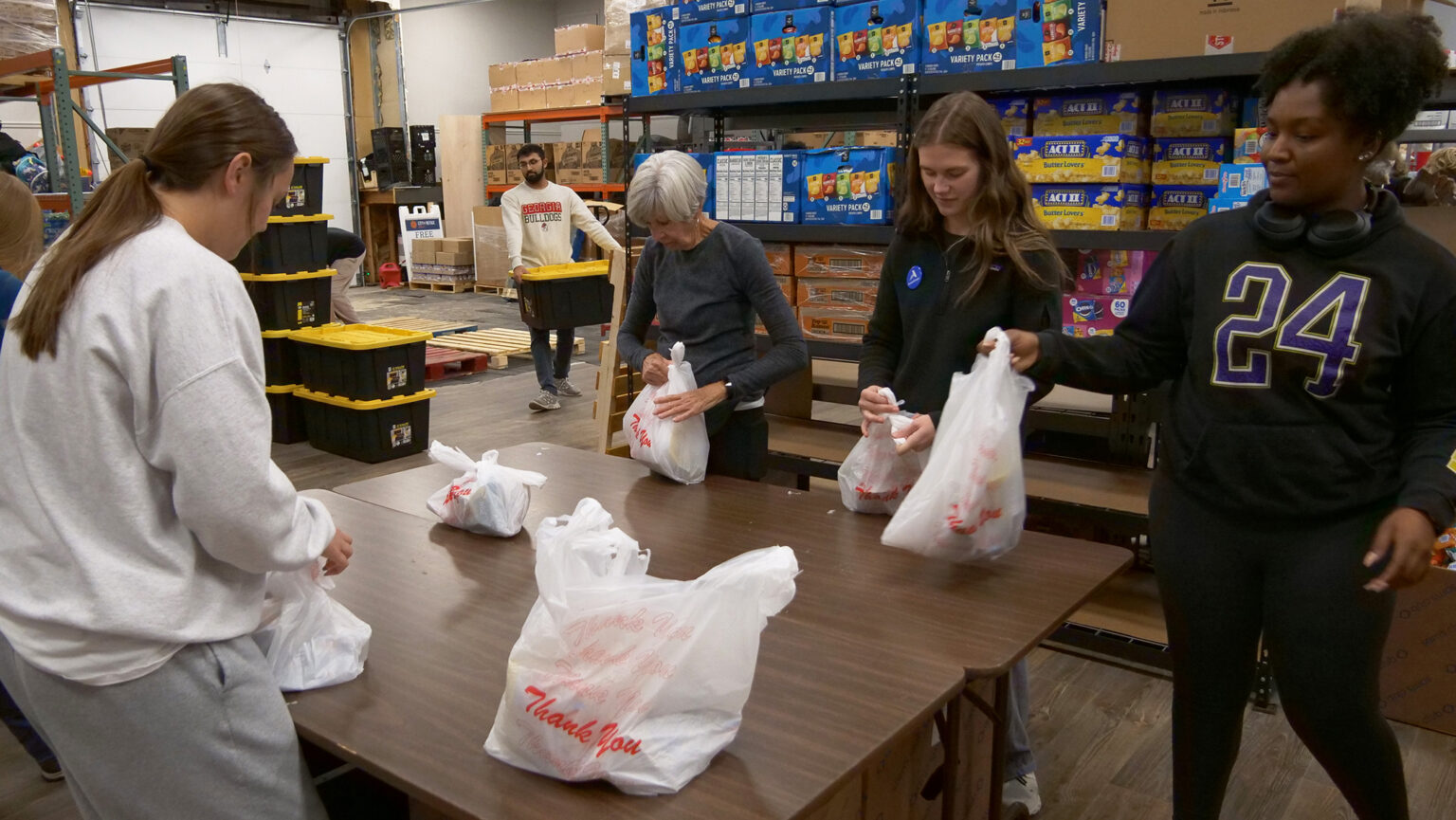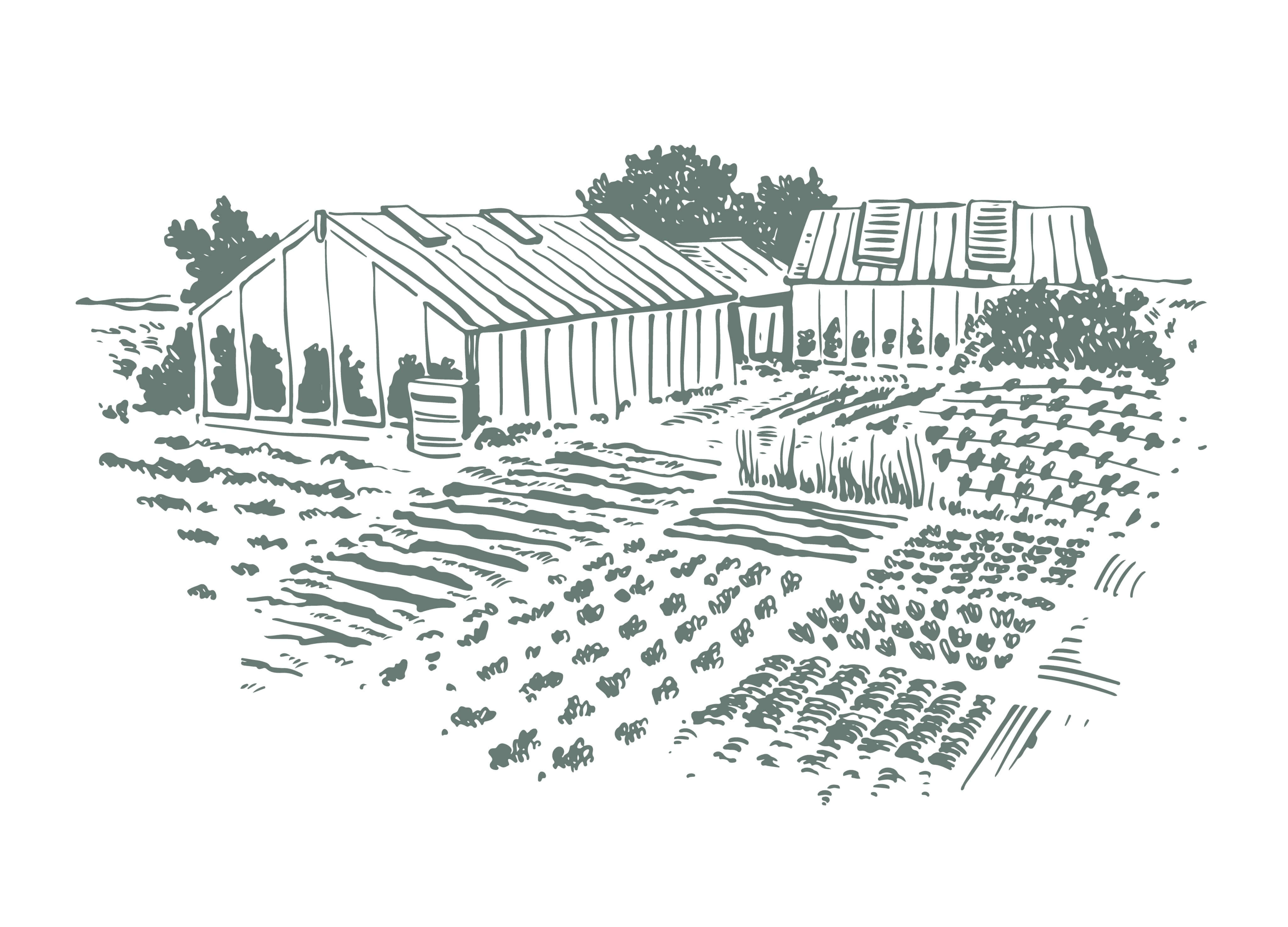In the last year, the medicinal herb program at UGArden, the University of Georgia’s student-run farm, has expanded its product line and the number of students involved has expanded substantially.
This fall, as they prepared locally grown and locally made teas, salves and soaps for their annual holiday market, students were excited about the program's growth and the community that has sprung up around the program.
“It’s cool because there are all these students in different programs that wouldn’t necessarily be coming out to a farm,” said Noelle Fuller, the program’s manager. “They get hands-on experience with different parts of this student-run business, and it’s accessible to a lot of people.”
Fuller, a trained herbalist who received a bachelor’s degree in nutrition science and a master’s degree in horticulture from UGA, started as a volunteer in the herb garden at UGArden while she was a student in the College of Agricultural and Environmental Sciences. When she graduated with her master’s degree last summer, she started managing the herb program.
This year’s growth has been due, in large part, to a $20,000 grant issued by UGA’s Office of Experiential Learning in early 2018. The grant funded Fuller’s part-time position and supported the herb program’s expansion across campus.
Each year, the Office of Experiential Learning distributes two grants to fund innovative and impactful experiential learning projects on campus. The UGArden medicinal tea program was one of the first recipients, said Scott Pegan, interim director of the Office of Experiential Learning.
“Experiential learning at the University of Georgia gives students hands-on opportunities to connect their academic foundations to the world beyond the classroom in ways that change their perspective and insight,” Pegan said. “The Office of Experiential Learning offers more than 70 competitive scholarships for students to use toward approved activities each year. Students participate in activities locally, across the state, country and world … Experiential learning challenges our students and is one more reason they are a step ahead of the competition.”
The grant has allowed Fuller to have much more hands-on time with students in the garden, she said. Every week volunteers and interns drive out to UGArden’s property to process dried herbs, work in the field, harvest plants and maintain the garden.
While the herb garden has grown, Fuller has also worked to grow the impact of the program across campus, forming partnerships with students from CAES and from many other colleges.
The UGArden Herb Program has worked with the Terry College of Business entrepreneurship certificate program, the Center for Agribusiness and Economic Development, and the Grady College of Journalism and Mass Communication New Media Institute. All three capstone programs worked on promotional items like marketing, outreach, branding, a sustainable business model, a new website and a record-keeping app.
Students in a First-Year Odyssey class, called “Local Food Entrepreneurship,” staffed the holiday market. They had been studying the business model of the herb program all semester, Fuller said.
Fuller is passionate about getting students of all strengths involved, whether they’re working in the field or thinking up sustainable business models.
“We’re trying to make it very holistic by giving students opportunities to be involved in the business in different ways and by incorporating a bunch of different perspectives,” Fuller said. “There are students that would never come out to work on the farm, but they can now help in other aspects of the business.”
The success of the program wouldn’t be possible without the legion of students who work with the program or without the community members and customers that have helped support the garden by buying its teas and other products.
The program now markets 10 all-natural herbal teas, holiday bath and beauty boxes, salves, lip balms, infused oils, locally grown loofahs and a new shiitake mushroom seasoning blends.
For more information about the UGArden Medicinal Herb Program, visit ugarden.uga.edu/medicinal-teas. For more information about how UGA supports experiential learning, visit el.uga.edu/resources.

